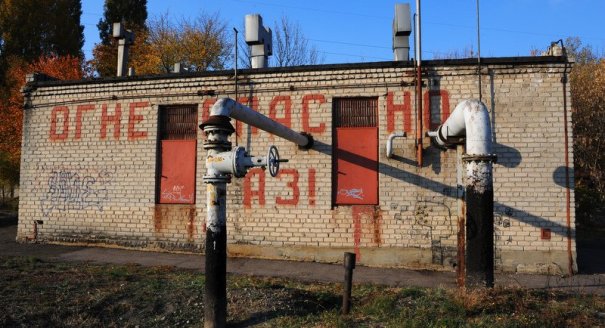If Minsk was about halting the fighting in Donbass, Milan has been essentially about ensuring uninterrupted supply of Russian gas to the European Union via Ukraine. It appears that Europe will likely guarantee the supply, by having agreed to pay Kiev's past debt and new gas bills to Gazprom. Moscow, for its part, has conceded on the price it charges for gas used by Ukraine. Much of the discussion in Milan has evidently centered on the intricate schemes to be used for payment. As a result, the transit gas purchased by the Europeans will not be diverted en route by the Ukrainians; Ukraine will get Russian gas paid for by the EU; and Russia will get the money.
It will be up to Russia to bail out the part of Donbass which its friends hold and would not give up. Coming on top of the Crimea commitment, and in the context of the Western sanctions, which are more likely to be toughened than eased, caring for a couple of million more people in a depressed and war-devastated region with an unrecognized status and murky conditions on the ground will not be easy. The European Union, however, will have to take care of Ukraine as a whole, with its 40-plus million residents, a ruined and heavily indebted economy and complex political and social environment. The cost of the required effort is anyone's guess. EU member Greece, with its 10 million people, recently needed 240 billion euro to avoid default. 16-million-stong East Germany, on the other hand, has used 1.5 trillion over 25 years, to integrate into the Federal Republic.
Ukraine, of course, is not an EU member, nor is it going to become one soon. Yet, if it is allowed to become a failed state, the consequences for Europe will be serious, even dire. Making sure that Ukraine keeps itself warm this winter is an absolutely necessary step, but much, much more will be needed on top of that. This is the harsh reality one has to face up to.





